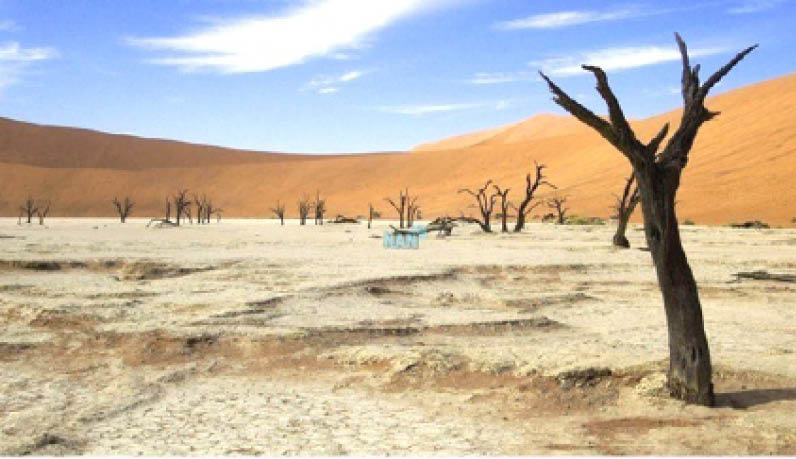Martin Muchangi, Director of WASH and Neglected Tropical Diseases (NTDs), Amref Health Africa, has urged African countries to work toward overcoming the effects of climate change.
According to him, there is the need to prepare as African health systems are not yet equipped to cope with the challenges of climate crises.
Muchangi spoke in response to questions from the News Agency of Nigeria (NAN) on the Africa Health Agenda International Conference (AHAIC) 2023 holding in Kigali, Rwanda.
NAN reports that the AHAIC 2023 brings together Africa’s top thought leaders, political figures, innovators, researchers, policy makers, health workers and community mobilisers for dialogue and action aimed at mainstreaming climate discourse into health policy conversations, and vice versa.
- 3 days to gov’ship poll: Govs in last-minute push, woo voters with incentives
- WASSCE fee: Ogun warns principal against extorting students
AHAIC 2023 which holds between March 5 and March 8, is jointly convened by Amref Health Africa, Ministry of Health Rwanda, African Union and Africa Centres for Disease Control and Prevention (Africa CDC).
He said: “If you look at the Africa systems, they are underprepared to cope with the challenges of climate crisis.
“At the national and sub national level, health systems are already facing significant challenges that make them particularly vulnerable to increased health burden of climate crisis, which also include threats by other communicable diseases, like what we saw with COVID-19 in growing population.
“There are major or significant funding gap for health infrastructure, commodities and other health systems issues too.
“However, there is variation in the level of preparedness across different countries, like when you look at South Africa and the Northern Africa countries, they have better systems.
“But, the general conclusion is that the health systems across board need to prioritise preparedness around how to address climate crisis and how to boost the delivery of climate related services.’’
The WASH director said there was also need for increase in the effectiveness of existing interventions for climate and health.
According to him, it is also imperative to improve the training of health professionals to understand the challenge and to be able to move forward with the mitigative measures as well as adaptative measures.
Muchangi noted that all the evidence pointed to the fact that climate change or climate crisis had implications across board, and more especially for those who are the poorest.
“Africa is at the forefront of growing health crises as a result of climate change and this is despite contributing to only four per cent of global greenhouse gas emissions.
“Africa is experiencing disproportionate increase in temperature.
“And this is actually contributing to the reduction of agricultural productivity of about 34 per cent since the year 1960.
“If you look at the communicable diseases, the rate of malaria and dengue, Ebola and other communicable diseases are on the rise and this is directly attributable to climate change,” he said.
The WASH director noted that climate change again was already having mental impact on the health workforce.
“A study conducted in six African countries report that over half of the health professional studied, considered the impacts of climate change on human health to be extensive and these are health workers speaking about these,” Muchangi said.’’
He emphasised that climate crisis was threatening to undo the last 50 years of progress in development, group health and poverty reduction and to further widen the health inequalities in between and within the populations.
“And to further widen the health inequalities between and within the populations , climate crisis is also jeopardising the realisation of Universal Health Care and exacerbating the barriers in accessing health services, especially to the poorest and the neediest’’, the director said.
He said there was also need to develop evidence based policies and micro strategies for public health adaptation to climate change crisis and strengthening Early Warning Systems.
Muchangi added that health should also become one of the key negotiation points at the United Nations Framework Convention on Climate Change and should involve cross sectoral collaborations to upscale action on climate change. (NAN) www.nannews.ng




